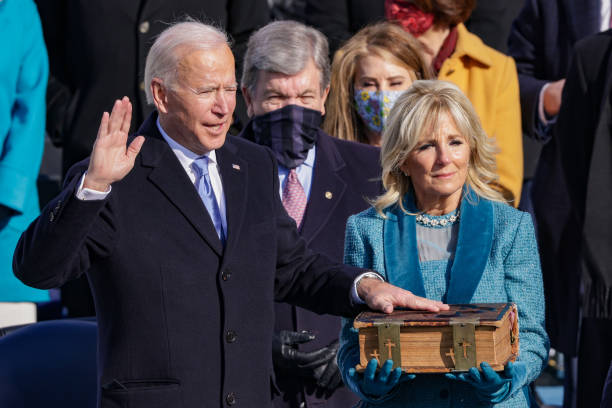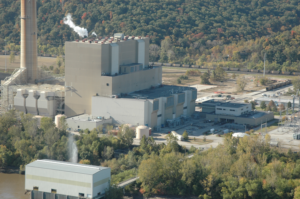In one of his first official acts after taking office, President Joe Biden revoked the federal permit for the Keystone XL crude oil pipeline that would have traversed eastern Montana on its way from the Alberta oilfields to the Gulf of Mexico.
The Wednesday move at least temporarily halts the construction on the highly contentious project that has seen several administrative stops and starts since its first application for state approval in 2008. It also raises the prospect that the oil could travel instead via pipeline through Iowa or on rail through Iowa, Wisconsin, Missouri, Tennessee and Louisiana.
Although several Republican lawmakers and others held out hope that the project would be renewed in the future, TC Energy, the Canadian company that owns the pipeline, said “advancement of the project will be suspended.”
Environmental activists and those eager for the potential billions in revenue the project could bring have fought over the proposed 1,100-mile pipeline for years.
The pipeline would transport crude oil from Canada to an existing pipeline network in Nebraska with connections to the Gulf of Mexico, spanning the Canadian border in Montana and across 285 miles in six eastern counties in the state.
It could also potentially transport oil from the Williston Basin, which includes Montana.
Commitment to climate change
Biden’s order revoked a permit his predecessor, Donald Trump, promised in his first days in office in 2017 and signed in March 2019. The Trump permit reversed an Obama administration decision not to grant the necessary permits.
Biden revoked the permit as part of an executive order related to public health, the environment and climate change. The order said the pipeline was not in the national interest and sent the wrong message to other countries about Biden’s commitment to addressing climate change and addressing renewable energy.
“Leaving the Keystone XL pipeline permit in place would not be consistent with my Administration’s economic and climate imperatives,” he said in the order.
Environmentalists have opposed the pipeline because it facilitates the use of fossil fuels that contribute to carbon pollution and climate change. Environmental groups and allies cheered Wednesday’s action on Keystone XL and an order rejoining the Paris Climate Accord, and pushed for more action to address climate change.
“These huge first steps show Biden is serious about climate action, but re-entering the Paris Agreement and canceling Keystone must be the start of a furious race to avert catastrophe,” said Kierán Suckling, executive director of the Center for Biological Diversity. “Much more is needed, and we’re increasingly hopeful the administration will stop approving new fossil fuel projects and speed the transition to clean, distributed energy that climate science and justice demand.”
Environmental groups have also raised concerns about health effects from toxic waste near oil extraction sites in Alberta, which especially harm Native communities, and the potential harm to animal habitats in the way of the pipeline.
4,000 jobs
Proponents of the pipeline have said its economic benefits would be a boon for workers along its path, including in Montana, and lower energy costs. TC Energy said it expected a peak of 4,000 jobs in the state during construction.
Alan Olson, executive director of the Montana Petroleum Association, a trade group of oil, gas and related companies, said the environmental damage of the pipeline “has been all hype.” Whether or not that specific pipeline exists, Canadian crude oil will be transported in other ways, then refined and used, he said.
“This oil is going someplace, regardless,” he said.
TC Energy could ship Alberta crude oil west to ports on Canada’s Pacific Coast, Olson said. The Dakota Access Pipeline, which crosses Iowa on the way from the Dakotas to Illinois, could also transport the oil. Canadian National Railway could also move the oil over its network, which includes rail in Wisconsin, Iowa, Missouri, Tennessee and Louisiana.
Portions of the pipeline have already been built in Montana, including at the border crossing, Olson said. It’s unclear what will happen to those pipes following the order. Litigation to challenge the decision is still possible, Olson said.
Reaction from Congress, Trudeau
Several Republican senators, including Montana’s Steve Daines and Louisiana’s Bill Cassidy, criticized Biden’s move and asked for the new president to rethink the decision.
“Biden has already taken steps to kill American energy projects like the Keystone XL Pipeline which is critical to energy producing states like Montana,” Daines said in a statement. “This project will create thousands of jobs, generate tax revenue for local communities, promote North American energy security and independence, and it is the safest and most environmentally friendly way to transport oil.”
Daines and other Republicans from Western states said Wednesday they would introduce a bill to renew construction of the pipeline.
Daines’ Montana counterpart, Democratic Sen. Jon Tester, urged Biden not to make a final decision on the pipeline until “meeting with supporters and opponents,” a spokesman wrote in an email.
Tester “continues to support the responsible development of the pipeline as long as it is constructed with American steel, built to the highest safety standards, respects private property rights and includes significant consultation with impacted Tribes,” the spokesman said.
Canadian Prime Minister Justin Trudeau said Wednesday he and other Canadian officials had lobbied Biden not to revoke the permit.
“We are disappointed but acknowledge the President’s decision,” Trudeau said in a statement that also praised other climate actions Biden took Wednesday.
White House Press Secretary Jen Psaki said Wednesday that Biden’s first call with a foreign leader would be with Trudeau Friday . Psaki said she expected the two would discuss the pipeline on that call.
Psaki also said the administration would review all oil and gas leases on public lands.
Our stories may be republished online or in print under Creative Commons license CC BY-NC-ND 4.0. We ask that you edit only for style or to shorten, provide proper attribution and link to our website. AP and Getty images may not be republished. Please see our republishing guidelines for use of any other photos and graphics.





